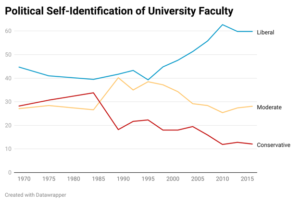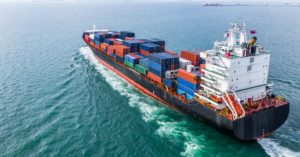In my second article on the college problem, I discussed the public policy factors that contribute to the rising cost of higher education. But politics makes its way into education through more than public policy, as professors bring their political views into their classrooms and research. Nothing has contributed more to my personal disillusionment with higher education than seeing the extent to which the ideological problem has affected the university system.
At the outset, let me say that the problem is not that professors have the wrong worldview. Some of the best and most impartial professors I’ve learned from have been on the left side of the political spectrum. Murray Rothbard approvingly cited Marxist and otherwise far-left historians, such as Eugene
Articles by Chris Calton
Higher Education Woes: Student Loans Help Fuel Higher College Costs
October 16, 2022In my previous article on the college problem, I discussed the cultural factors that have contributed to the falling value of a university degree, which I hoped would show that we cannot reduce the decline of higher education to public policy failures. However, bad policy has been a major contributor to the problems plaguing the university system, both at the federal and state levels.
President Joe Biden’s plan to eliminate up to $20,000 of student loan debt for individual borrowers has brought renewed attention to the first of these policy failures. Despite a brief and unsuccessful attempt to include student loan forgiveness in the mammoth covid stimulus package, the policy response to the pandemic overshadowed the student debt crisis for much of the past three
College as an Economic and Social Problem: Dealing with the Culture
October 13, 2022Jeff Deist recently posed the question “Is College Worth It?” My first thought when I opened the article was that he could have reduced the entire piece to a single word: “no.” This cynicism might seem odd coming from somebody who is nearing the end of a PhD program in history, which takes an average of eight years to complete, not including the years spent acquiring a BA and, for many students, an MA before even starting on the doctorate. But this experience has given me perspective, disillusioning as it has been, on the value of higher education in its current state.
The ever-sober Deist, of course, did not simply make a blanket argument that higher education is never worth it. Rather, he acknowledged the important reality that however far the university system
Malcolm McLean: The Unsung Capitalist Hero Who Changed the World One Container at a Time
August 27, 2022Ask the average person what they believe to be the most economically important innovation of the twentieth century, and they’ll probably point to the internet. The internet has certainly disproved Paul Krugman’s prediction that it would have no greater impact on the economy than the fax machine, but even this transformative technology may only warrant a silver medal when compared to something much more banal: the intermodal shipping container.
The shipping container was the brainchild of Malcolm McLean. A twentieth-century rags-to-riches story, McLean began his foray into the transportation business with only a high school education. Working as a gas station clerk, he’d saved up $120 to purchase a used truck by age twenty-one, and in 1944, he founded his first
It Was the Lockdowns, Not the Pandemic That Created the Havoc
April 10, 2022It may be years before we fully realize the ramifications of the lockdown policies governments around the world have imposed on their citizens in response to covid-19, but evidence of the costs is starting to trickle in.
A recent study conducted by the Centers for Disease Control and Prevention (CDC) surveyed thousands of high school students on the effects of the pandemic. “Since the beginning of the pandemic,” the study reports, “more than half of students found it more difficult to complete their schoolwork (66%) and experienced emotional abuse by a parent or other adult in their home (55%),” which correlated heavily with students who “experienced insecurity via parental job loss (29%), personal job loss (22%), and hunger (24%).”
A related CDC study, released
In a Free Economy, Prices Would be Going down, Not Up
November 9, 2021Whenever politicians and media outlets discuss inflation, they invariably use the Consumer Price Index (CPI) as their measure. The CPI is only one of several price indices on top of the various measures of the money supply that underlie aggregate price changes. Strictly speaking, the CPI does not measure inflation per se, but rather the consequences of monetary expansion on consumer products. In macroeconomics, the CPI is one of the key indicators of economic health, and it is this inflation measure that economists use to calculate real GDP. Naturally, the accuracy of the CPI as a measure of the consequences of credit expansion is critically important, yet the measure is controversial among investors. As Investopedia explains, the CPI is “a proxy for inflation,”
Read More »





